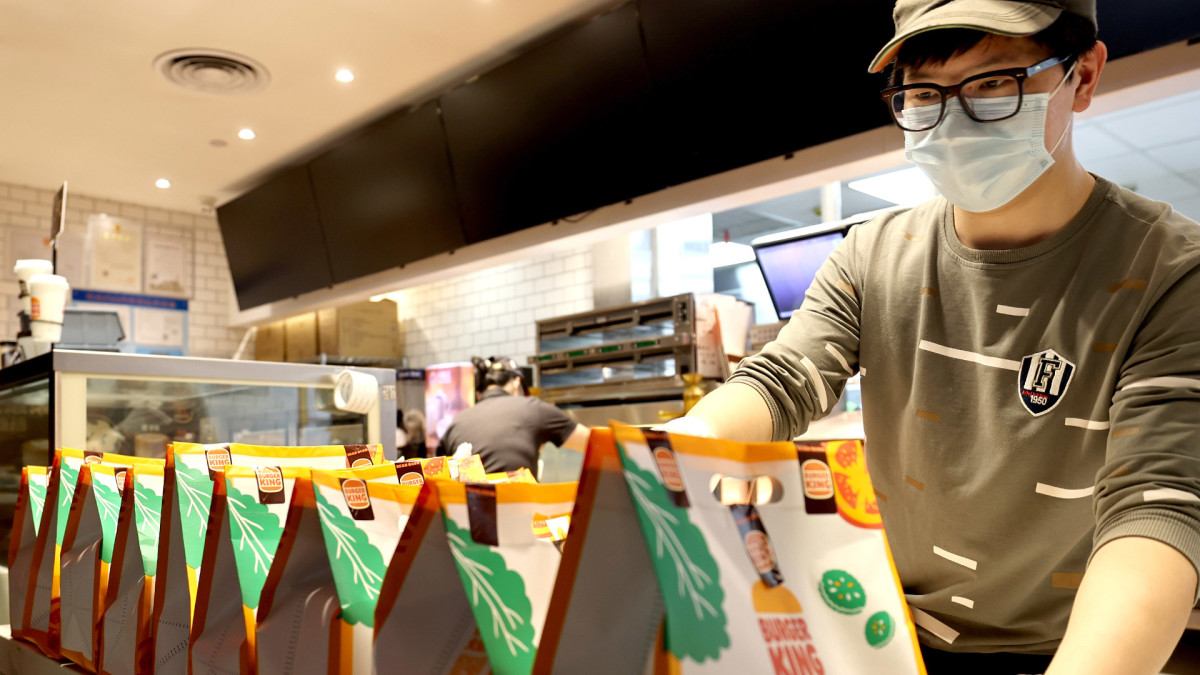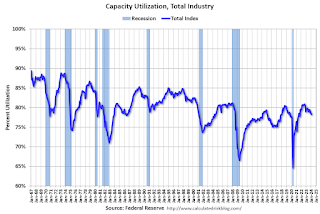Uncategorized
Jeftovic: Canada’s Multi-Generational Gold Gaffe
Jeftovic: Canada’s Multi-Generational Gold Gaffe
Authored by Mark Jeftovic via DollarCollapse.com,
Successive BoC Governors & PMs Have…

Authored by Mark Jeftovic via DollarCollapse.com,
Successive BoC Governors & PMs Have Compounded Failure and Spurned Opportunity
After looking poised to rack up fresh all-time-highs (in USD terms) earlier this year, the gold price has experienced somewhat of a dump lately. It’s possible the market believes the likes of Paul Krugman – who is taking victory laps for taming inflation (he calls it a win for “Team long transitory”, whatever that‘s supposed to mean).
Still no recession, but core PCE down to 2.2% on a three-month basis. Team Long Transitory for the win.
— Paul Krugman (@paulkrugman) September 29, 2023
However you wouldn’t know that from watching the rate at which central banks around the world are hoovering up the yellow metal, setting a fresh record over the first half of 2023 at over 200 tonnes.
Which banks are backing up the truck?
Not many surprises there, (except maybe the ECB) and the Q2 net numbers were dampened because Turkey – who has been in a slow motion firefight with high inflation for over twenty years had to sell off a boatload to support the Lira. The takeaway from that is they had gold reserves to support their financial system.
Fourth largest gold producer in the world.
Of the top gold producing nations in the world, Canada is number four.
Canada stands out contrary to all the other top gold producing nations, as it is the only top ten producers where the central bank’s FX reserves holds no gold. Zero, nada.
Even Ghana, the sixth top producing nation, whose national GDP is about the same size as Oakville, Ontario has 8 tonnes of gold squirrelled away.
After steadily selling down its gold reserves since the 60’s…
Via Ceicdata
Justin Trudeau’s first finance minister, Bill Morneau, emptied out Canada’s remaining gold reserves in 2016, pretty well bottom-ticking the gold bear market that started in 2011.
His predecessor, Mark Carney – who was appointed by Stephen Harper made an oblique “barbarous relic” comment in 2010 – channeling, as many central bankers and Nobel Laureates do, John Maynard Keynes’s famous quip from 1924.
Few, if any of them realize that Keynes underwent three distinct phases over his investment career and he made that pronouncement during the middle phase, and later changed course. At the time of his death he had fully 2/3 of his net worth invested in South African gold miners (fewer still, understand that Keynes was a Fabian Socialist and that his economic prescriptions, if implemented, would inexorably lead to communism).
It’s not just gold that Canadian policymakers hate
Canada is sitting on the third largest oil reserves in the world (after Saudi Arabia and Venezuela). Instead of maximizing the opportunity of becoming an energy powerhouse, one based in a politically stable, democratic jurisdiction; Ottawa has instead embarked on an ideological crusade against the oil and gas industry, framing it as the antagonist in some mythological, shared psychosis of climate alarmism.
It has left Albertans feeling so demonized by Ottawa’s insular political class, that the idea of #Wexit, which wasn’t even a thing prior to the election of Justin Trudeau, is practically baked-in now. Especially if the Liberals squeak out another election win (that’s doubtful, but if they do, Alberta is out).
Minister Guilbeault eloquently outlines his plan to secure a Conservative super majority next federal election.#Cdnpoli @s_guilbeault pic.twitter.com/JKQd1ESXKL
— David Jacobs (@DrJacobsRad) October 3, 2023
In late 2022, German chancellor Olaf Scholz made a rare foreign trip, coming to Canada practically begging us to sell his country natural gas, given that their primary supplier, was Russia. Trudeau told him to suck it, and offered him sell him unicorn farts instead (hydrogen, ten years out).
Germany went on to sign a 15 year deal for natgas with Qatar.
Not long after that, Trudeau told the same thing to Japan. They ended up entering into a long term deal with the Abu Dhabi National Oil Company (ADNOC).
In other words, Canada is divesting out of hard assets, trying to kill its energy sector, while going long wokery and even collectivism.
The Era of Woke Capitalism is Over
This is something I’ve been covering in The Bitcoin Capitalist for over a year (and Why Wokeness is Doomed, here):
The era of Woke capitalism is over. The entire ESG “model” can only work within the heady exuberance of an Everything Bubble, and the Everything Bubble ended along with a 40 year bull market for bonds and the end of cheap capital.
Reality is now reasserting itself, and all that woke crap is finished. In some places faster, and some places (like Canada), more slowly. But it’s done.
While other central banks around the world are have been sensing a tectonic shift in the global financial system and loading up on gold (namely, de-dollarization within a multi-polar monetary world), Canada is completely wrong footed and in denial about it.
We’re busy honouring literal Nazis, launching grocery store price monitoring bureaus, and generally looking like retards.
We expect this to worse before it gets better. Even if the central banks of the world do pivot and reignite the printing presses (and they probably will), it will no longer be a heady, feel-good sequel to the Everything Bubble, and it will not bring about an era of Fully Automated Luxury Communism (a.k.a MMT). Instead, it will be a hyper-stagflationary currency war against the backdrop of a rapidly shifting global financial system – and those central banks holding the gold will be the ones setting the rules in the post-post-Bretton Woods Era.
Uncategorized
One city held a mass passport-getting event
A New Orleans congressman organized a way for people to apply for their passports en masse.

While the number of Americans who do not have a passport has dropped steadily from more than 80% in 1990 to just over 50% now, a lack of knowledge around passport requirements still keeps a significant portion of the population away from international travel.
Over the four years that passed since the start of covid-19, passport offices have also been dealing with significant backlog due to the high numbers of people who were looking to get a passport post-pandemic.
Related: Here is why it is (still) taking forever to get a passport
To deal with these concurrent issues, the U.S. State Department recently held a mass passport-getting event in the city of New Orleans. Called the "Passport Acceptance Event," the gathering was held at a local auditorium and invited residents of Louisiana’s 2nd Congressional District to complete a passport application on-site with the help of staff and government workers.
'Come apply for your passport, no appointment is required'
"Hey #LA02," Rep. Troy A. Carter Sr. (D-LA), whose office co-hosted the event alongside the city of New Orleans, wrote to his followers on Instagram (META) . "My office is providing passport services at our #PassportAcceptance event. Come apply for your passport, no appointment is required."
More Travel:
- A new travel term is taking over the internet (and reaching airlines and hotels)
- The 10 best airline stocks to buy now
- Airlines see a new kind of traveler at the front of the plane
The event was held on March 14 from 10 a.m. to 1 p.m. While it was designed for those who are already eligible for U.S. citizenship rather than as a way to help non-citizens with immigration questions, it helped those completing the application for the first time fill out forms and make sure they have the photographs and identity documents they need. The passport offices in New Orleans where one would normally have to bring already-completed forms have also been dealing with lines and would require one to book spots weeks in advance.
These are the countries with the highest-ranking passports in 2024
According to Carter Sr.'s communications team, those who submitted their passport application at the event also received expedited processing of two to three weeks (according to the State Department's website, times for regular processing are currently six to eight weeks).
While Carter Sr.'s office has not released the numbers of people who applied for a passport on March 14, photos from the event show that many took advantage of the opportunity to apply for a passport in a group setting and get expedited processing.
Every couple of months, a new ranking agency puts together a list of the most and least powerful passports in the world based on factors such as visa-free travel and opportunities for cross-border business.
In January, global citizenship and financial advisory firm Arton Capital identified United Arab Emirates as having the most powerful passport in 2024. While the United States topped the list of one such ranking in 2014, worsening relations with a number of countries as well as stricter immigration rules even as other countries have taken strides to create opportunities for investors and digital nomads caused the American passport to slip in recent years.
A UAE passport grants holders visa-free or visa-on-arrival access to 180 of the world’s 198 countries (this calculation includes disputed territories such as Kosovo and Western Sahara) while Americans currently have the same access to 151 countries.
stocks pandemic covid-19 grantsUncategorized
Fast-food chain closes restaurants after Chapter 11 bankruptcy
Several major fast-food chains recently have struggled to keep restaurants open.

Competition in the fast-food space has been brutal as operators deal with inflation, consumers who are worried about the economy and their jobs and, in recent months, the falling cost of eating at home.
Add in that many fast-food chains took on more debt during the covid pandemic and that labor costs are rising, and you have a perfect storm of problems.
It's a situation where Restaurant Brands International (QSR) has suffered as much as any company.
Related: Wendy's menu drops a fan favorite item, adds something new
Three major Burger King franchise operators filed for bankruptcy in 2023, and the chain saw hundreds of stores close. It also saw multiple Popeyes franchisees move into bankruptcy, with dozens of locations closing.
RBI also stepped in and purchased one of its key franchisees.
"Carrols is the largest Burger King franchisee in the United States today, operating 1,022 Burger King restaurants in 23 states that generated approximately $1.8 billion of system sales during the 12 months ended Sept. 30, 2023," RBI said in a news release. Carrols also owns and operates 60 Popeyes restaurants in six states."
The multichain company made the move after two of its large franchisees, Premier Kings and Meridian, saw multiple locations not purchased when they reached auction after Chapter 11 bankruptcy filings. In that case, RBI bought select locations but allowed others to close.
Image source: Chen Jianli/Xinhua via Getty
Another fast-food chain faces bankruptcy problems
Bojangles may not be as big a name as Burger King or Popeye's, but it's a popular chain with more than 800 restaurants in eight states.
"Bojangles is a Carolina-born restaurant chain specializing in craveable Southern chicken, biscuits and tea made fresh daily from real recipes, and with a friendly smile," the chain says on its website. "Founded in 1977 as a single location in Charlotte, our beloved brand continues to grow nationwide."
Like RBI, Bojangles uses a franchise model, which makes it dependent on the financial health of its operators. The company ultimately saw all its Maryland locations close due to the financial situation of one of its franchisees.
Unlike. RBI, Bojangles is not public — it was taken private by Durational Capital Management LP and Jordan Co. in 2018 — which means the company does not disclose its financial information to the public.
That makes it hard to know whether overall softness for the brand contributed to the chain seeing its five Maryland locations after a Chapter 11 bankruptcy filing.
Bojangles has a messy bankruptcy situation
Even though the locations still appear on the Bojangles website, they have been shuttered since late 2023. The locations were operated by Salim Kakakhail and Yavir Akbar Durranni. The partners operated under a variety of LLCs, including ABS Network, according to local news channel WUSA9.
The station reported that the owners face a state investigation over complaints of wage theft and fraudulent W2s. In November Durranni and ABS Network filed for bankruptcy in New Jersey, WUSA9 reported.
"Not only do former employees say these men owe them money, WUSA9 learned the former owners owe the state, too, and have over $69,000 in back property taxes."
Former employees also say that the restaurant would regularly purchase fried chicken from Popeyes and Safeway when it ran out in their stores, the station reported.
Bojangles sent the station a comment on the situation.
"The franchisee is no longer in the Bojangles system," the company said. "However, it is important to note in your coverage that franchisees are independent business owners who are licensed to operate a brand but have autonomy over many aspects of their business, including hiring employees and payroll responsibilities."
Kakakhail and Durranni did not respond to multiple requests for comment from WUSA9.
bankruptcy pandemicUncategorized
Industrial Production Increased 0.1% in February
From the Fed: Industrial Production and Capacity Utilization
Industrial production edged up 0.1 percent in February after declining 0.5 percent in January. In February, the output of manufacturing rose 0.8 percent and the index for mining climbed 2.2 p…

Industrial production edged up 0.1 percent in February after declining 0.5 percent in January. In February, the output of manufacturing rose 0.8 percent and the index for mining climbed 2.2 percent. Both gains partly reflected recoveries from weather-related declines in January. The index for utilities fell 7.5 percent in February because of warmer-than-typical temperatures. At 102.3 percent of its 2017 average, total industrial production in February was 0.2 percent below its year-earlier level. Capacity utilization for the industrial sector remained at 78.3 percent in February, a rate that is 1.3 percentage points below its long-run (1972–2023) average.Click on graph for larger image.
emphasis added
This graph shows Capacity Utilization. This series is up from the record low set in April 2020, and above the level in February 2020 (pre-pandemic).
Capacity utilization at 78.3% is 1.3% below the average from 1972 to 2022. This was below consensus expectations.
Note: y-axis doesn't start at zero to better show the change.
 The second graph shows industrial production since 1967.
The second graph shows industrial production since 1967.Industrial production increased to 102.3. This is above the pre-pandemic level.
Industrial production was above consensus expectations.
-

 Uncategorized3 weeks ago
Uncategorized3 weeks agoAll Of The Elements Are In Place For An Economic Crisis Of Staggering Proportions
-

 International1 week ago
International1 week agoEyePoint poaches medical chief from Apellis; Sandoz CFO, longtime BioNTech exec to retire
-

 Uncategorized4 weeks ago
Uncategorized4 weeks agoCalifornia Counties Could Be Forced To Pay $300 Million To Cover COVID-Era Program
-

 Uncategorized3 weeks ago
Uncategorized3 weeks agoApparel Retailer Express Moving Toward Bankruptcy
-

 Uncategorized4 weeks ago
Uncategorized4 weeks agoIndustrial Production Decreased 0.1% in January
-

 International1 week ago
International1 week agoWalmart launches clever answer to Target’s new membership program
-

 Spread & Containment2 days ago
Spread & Containment2 days agoIFM’s Hat Trick and Reflections On Option-To-Buy M&A
-

 Uncategorized4 weeks ago
Uncategorized4 weeks agoRFK Jr: The Wuhan Cover-Up & The Rise Of The Biowarfare-Industrial Complex






















